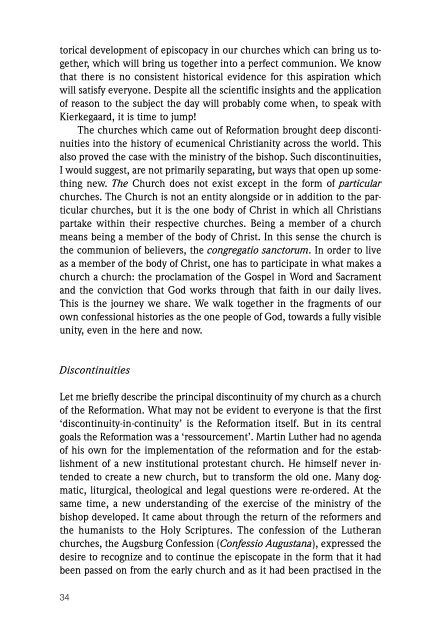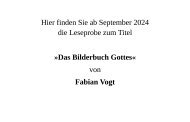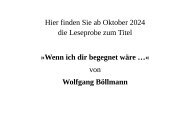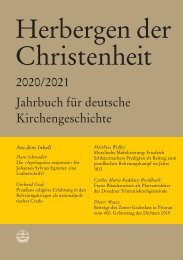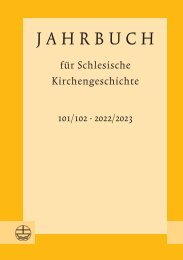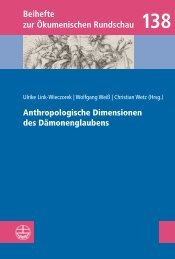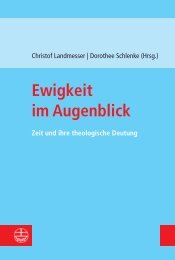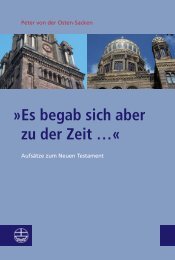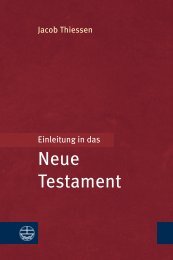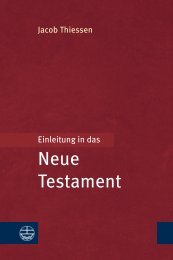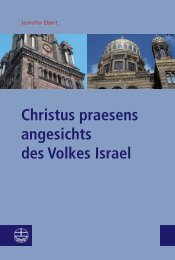Mark Chapman | Matthias Grebe | Friederike Nüssel | Frank-Dieter Fischbach (Eds.): Towards Interchangeability (Leseprobe)
This book examines how the practice of episcopacy in the Church of England and the EKD affects the claim that the ‘historic episcopate’ is a necessary condition for ‘the full interchangeability of ministers’. It addresses four questions relating to the practice of oversight: How have different forms of oversight sought to maintain the apostolic ‘historic’ faith in history and today? How does the exercise of authority within contemporary societies relate to the pre-modern ideas expressed in the idea of historic episcopate? How has the practice of oversight changed in the light of demographic changes and declining levels of church membership? What are the implications of synodical government and shared oversight for the concept of ‘historic episcopate’? The book’s goal is to explore whether an interdisciplinary analysis of episcopacy can assist the churches in establishing a new understanding of the “historic episcopate”.
This book examines how the practice of episcopacy in the Church of England and the EKD affects the claim that the ‘historic episcopate’ is a necessary condition for ‘the full interchangeability of ministers’. It addresses four questions relating to the practice of oversight: How have different forms of oversight sought to maintain the apostolic ‘historic’ faith in history and today? How does the exercise of authority within contemporary societies relate to the pre-modern ideas expressed in the idea of historic episcopate? How has the practice of oversight changed in the light of demographic changes and declining levels of church membership? What are the implications of synodical government and shared oversight for the concept of ‘historic episcopate’?
The book’s goal is to explore whether an interdisciplinary analysis of episcopacy can assist the churches in establishing a new understanding of the “historic episcopate”.
Create successful ePaper yourself
Turn your PDF publications into a flip-book with our unique Google optimized e-Paper software.
torical development of episcopacy in our churches which can bring us together,<br />
which will bring us together into a perfect communion. We know<br />
that there is no consistent historical evidence for this aspiration which<br />
will satisfy everyone. Despite all the scientific insights and the application<br />
of reason to the subject the day will probably come when, to speak with<br />
Kierkegaard, it is time to jump!<br />
The churches which came out of Reformation brought deep discontinuities<br />
into the history of ecumenical Christianity across the world. This<br />
also proved the case with the ministry of the bishop. Such discontinuities,<br />
I would suggest, are not primarily separating, but ways that open up something<br />
new. The Church does not exist except in the form of particular<br />
churches. The Church is not an entity alongside or in addition to the particular<br />
churches, but it is the one body of Christ in which all Christians<br />
partake within their respective churches. Being a member of a church<br />
means being a member of the body of Christ. In this sense the church is<br />
the communion of believers, the congregatio sanctorum. In order to live<br />
as a member of the body of Christ, one has to participate in what makes a<br />
church a church: the proclamation of the Gospel in Word and Sacrament<br />
and the conviction that God works through that faith in our daily lives.<br />
This is the journey we share. We walk together in the fragments of our<br />
own confessional histories as the one people of God, towards a fully visible<br />
unity, even in the here and now.<br />
Discontinuities<br />
Let me briefly describe the principal discontinuity of my church as a church<br />
of the Reformation. What may not be evident to everyone is that the first<br />
‘discontinuity-in-continuity’ is the Reformation itself. But in its central<br />
goals the Reformation was a ‘ressourcement’. Martin Luther had no agenda<br />
of his own for the implementation of the reformation and for the establishment<br />
of a new institutional protestant church. He himself never intended<br />
to create a new church, but to transform the old one. Many dogmatic,<br />
liturgical, theological and legal questions were re-ordered. At the<br />
same time, a new understanding of the exercise of the ministry of the<br />
bishop developed. It came about through the return of the reformers and<br />
the humanists to the Holy Scriptures. The confession of the Lutheran<br />
churches, the Augsburg Confession (Confessio Augustana), expressed the<br />
desire to recognize and to continue the episcopate in the form that it had<br />
been passed on from the early church and as it had been practised in the<br />
34


